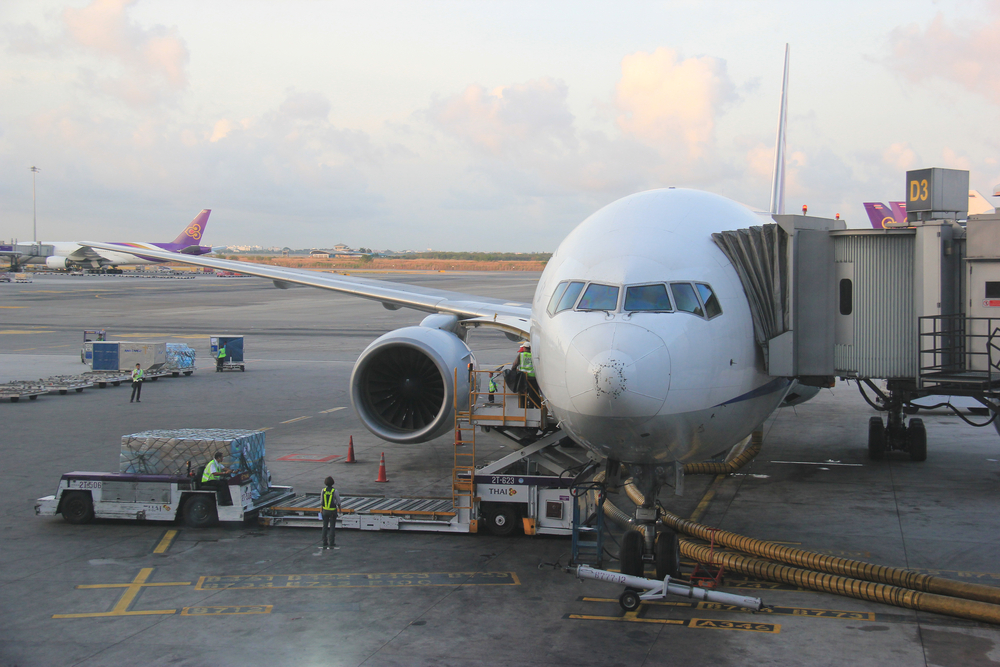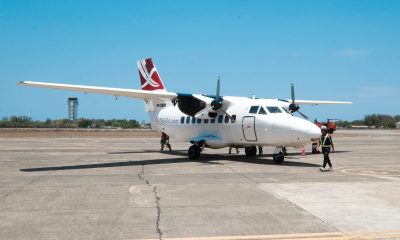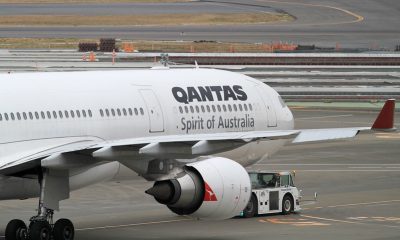Breaking
Boeing warns airlines against flying battery shipments
WASHINGTON — Boeing, one of the world’s two largest aircraft makers, warned its passenger airline customers on Friday that flying bulk shipments of lithium-ion batteries can cause fires capable of destroying the planes.
The U.S. Federal Aviation Administration also issued a statement acknowledging that testing it has “conducted on the transport of lithium batteries has indicated that it presents a risk.”
The guidance sent to airlines around the globe urged that they not carry the batteries as cargo “until safer methods of packaging and transport are established and implemented,” Boeing spokesman Doug Alder told The Associated Press in an email.
The rechargeable batteries are used in cellphones, laptop computers, power tools and many other electronic devices. They are also often shipped as cargo on international airline flights.
FAA tests over the past year show that when the batteries short-circuit they emit hydrogen and other gases that can build up. When the gases ignite, they cause fierce explosions and unleash fires that are very difficult to put out. The halon fire suppression systems in the cargo compartments of airliners have been shown to be ineffective against battery fires. The systems have been able to put out the initial flames from overheated batteries, but are unable to stop the batteries from continuing to overheat and reigniting.
It’s common for tens of thousands of batteries to be packed into a single shipping container. The global battery industry has been lobbying heavily against significant restrictions on battery shipments other than minor changes to current regulations. Many electronics manufacturers also prefer to receive batteries quickly by air, rather than more slowly by ship, so that they can avoid having to keep large supplies on hand.
The International Civil Aviation Organization, a United Nations agency, is trying to come up with new standards for packaging that can contain battery fires. A special working group is scheduled to meet on the matter later this month. If the group cannot come up with such packaging, aviation officials have said it’s likely that a formal proposal to ban bulk battery shipments from passenger planes will be offered at an ICAO meeting on dangerous cargo in October.
The FAA is precluded by a law Congress passed in 2012 from issuing any regulations related to the transport of lithium batteries unless the international organization acts first.
“Later this month, there will be an opportunity for the international community to consider this announcement along with risk factors,” the agency said in a statement. “The FAA has been leading this work at ICAO and will continue to provide technical information and expertise.”
The Air Line Pilots Association praised Boeing in a statement released Friday night. The pilots union said, “We hope this warning will encourage others to follow suit and discontinue the bulk shipment of lithium batteries on board passenger aircraft and on cargo aircraft” until adequate safety procedures are developed.
Alder said Boeing’s warning to airlines mirrors an industry position paper circulated this spring to ICAO and global aviation authorities that urged a ban on bulk battery shipments on passenger planes, calling the threat of fires “an unacceptable risk.”
The paper was authored by the International Coordination Council of Aerospace Industry Associations, whose members include Boeing, Airbus and other aircraft companies. The International Federation of Air Line Pilots Associations, an umbrella group for pilot unions, joined the aircraft makers in issuing the paper.
An FAA test in February resulted in a powerful explosion despite being conducted in a pressurized chamber with an atmosphere of 5 percent halon.
Triggered by smoke, fire suppression systems are supposed to unleash halon until the gas reaches 5 percent of the air in the cargo compartment. Previously, aviation authorities had accepted that this level of halon is enough to put out most fires, including a lithium-ion battery fire.
The February test resulted in an explosion in which pressure in the chamber rose from a normal 15 pounds per square inch to 70 psi, according to an agency slide presentation. Without the presence of halon, the explosion was even more powerful, with pressure rising to about 80 psi. Two safety experts interviewed by the AP described an explosion of that force as “significant.”
A growing number of airlines have also said they will no longer accept bulk battery shipments, including Delta, United, Cathay Pacific, Qantas, British Airways and Cargolux. But many other airlines continue to carry the shipments.






















